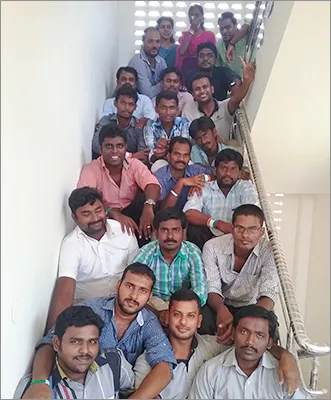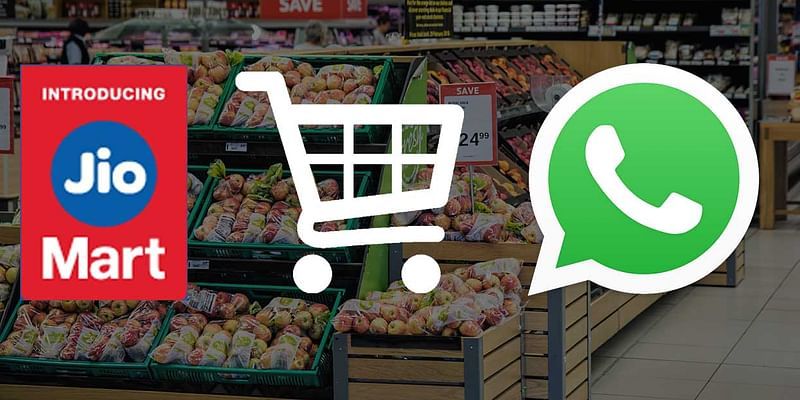Bootstrapped, this truck aggregator is clocking revenues of Rs 1 Crore
The friendship of Vasanth Immanuel and Jay Panneerselvam goes back to college days when they were studying at the National Institute of Industrial Engineering, (NITIE) Mumbai. The course finished and they parted ways, Vasanth went on to head the supply chain and administration for Asian Paints in Chennai, whereas Jay (Vasanth's junior) handled IT and marketing for a global company and was based out of Singapore.

This seemed like a normal discourse, however, little did they know that their paths shall meet again. Vasanth wasn’t really happy with the technology interventions being followed for supply chain management. He believed in the power of technology, and that it could disrupt this space.
Thus, after spending close to seven years in the supply chain, Vasanth chose to start Store N Move in 2012, which functioned as a warehousing and logistics service provider.
However, it was early 2014 when Vasanth thought that for most customers (majorly B2B companies which move goods) logistics is one function which still hasn’t gone online. Thus, Jay buckled up to join the business in December 2014 and OLog saw its inception.
OLog, standing for online logistics, is an e-market or marketplace for inter-city trucks, aiming to integrate all logistics providers directly with the clients (B2B) thereby building transparency in the system. Bootstrapped, the venture currently operates out of Chennai.
Vasanth says,
“Somewhere trucking was something which was needed to be taken forward. Thus, through creating a market place, there is complete visibility and transparency in the system.”
How does it work?
Starting operations in June 2015, OLog works on a similar concept of cab bookings, where customers just put in a request and the transporter responds to it.
However, the co-founders tell us that there is a catch to the same. As opposed to the cab aggregator market, the truck aggregator market works on categorisation. There are 30 different types of category vehicles used depending on the needs and dimensions of the shipment.
Moreover, a minimum of four hours of lead time is required prior to the pickup. The pool of transporters doesn’t just include vendors owning a fleet of trucks but also individual truck owners who can sign up on the platform.
Another major change OLog was vying for was converting the truck transportation market from cash to online. With initial hesitance from the truck owners to migrate from the cash system, the venture introduced the seamless payment system that OLog had built with SAP.This back-end technology integrated with some of the banks helped build the trust with the partners. Now online payments have completely replaced cash and the truck owners on the platform are now comfortable with online payments.

Team size
Having an active squad size of 25 members, OLog’s team comprises supply managers, customer care operators, and IT operations. With a backend team of 15 members at present, the venture is all set to grow this number to almost 100.
Growth metrics
Within three months of functioning, OLog has roped in 20 clients including big names like Samsung, Philips, Perfetti, and Britannia. They have an active vehicle inventory of almost 1000 transportation vehicles with 100 vendors having an average of 10 trucks each. Currently present in only three cities, Bangalore, Chennai, and Kolkata, the venture is looking to set foot in other cities by the end of this year.
The road ahead
Moving forward, the startup is all set to aggressively capture the market with plans to expand to 20 cities in the coming months. They are placing their presence in Mumbai, Cochin, Hyderabad, Vijayawada, Ranchi, Coimbatore, and Madurai to name a few.
The founders are also planning to grow their vendor network to 900 in the coming few months taking their vehicle inventory to 10,000 vehicles.
On the revenue front, the firm is scored revenue of one crore last month and is aiming to secure 10 crores in revenue by June 2016. The firm also caters to e-commerce startups such as Urban Ladder and Myntra, for their intercity transportation. They are in advanced talks with some investors and might close their first round of funding soon.
While looking at the technology purview, the venture seems to have a few plans up their sleeve. They are looking at methods to see if paperwork for shipments could be done digitally and are on a pilot with Philips around the same.
They are also looking to launch ‘Truck IoT’, which will include introducing a mobile device on the truck. This mobile device will collect data from the truck and send it to a vendor’s platform. Thus, helping the vendor manage all his trucks and resources, and understand the whereabouts of each resource.
YourStory take
Truck aggregators aren’t a new thing hitting the scene, with aggregators like GoGo Trucks and TheKarrier already functioning in this space. However, they function only intra-city, and not inter city. With inter-city logistics being quite a rudimentary market, innovation is definitely the key to differentiation. Their strategies aren’t really hard to guess. While, TheKarrier is striving to bring the order confirmation time to less than 30 seconds and lead time to less than 30 minutes, GoGo Trucks is looking at scalability and other markets. While most of the players remain to be bootstrapped or seed funded, it is a matter of time to see whether funding and scalability might be the key to success for ventures operating in this space.
Website: www.storenmove.com











